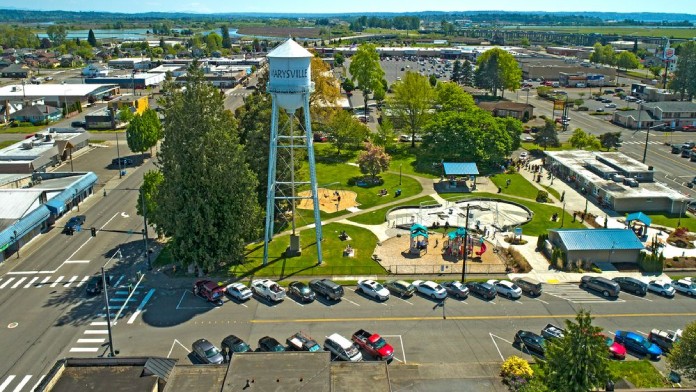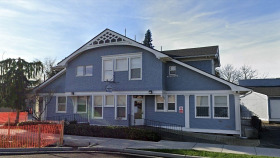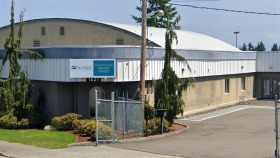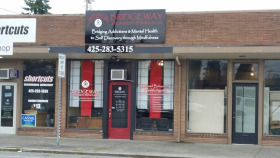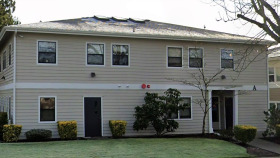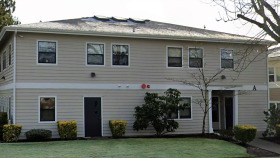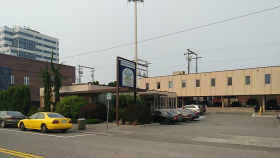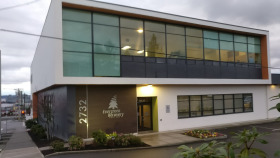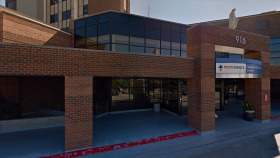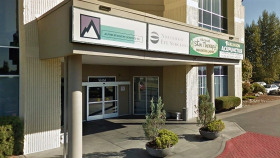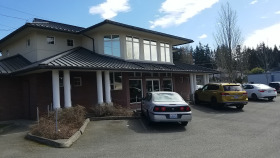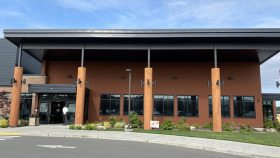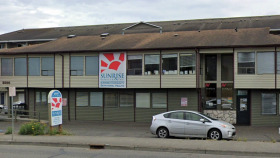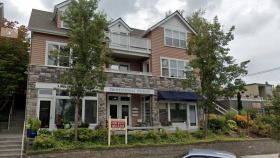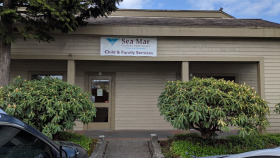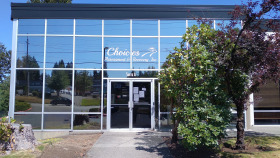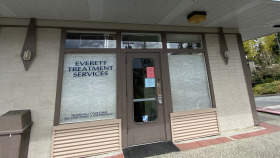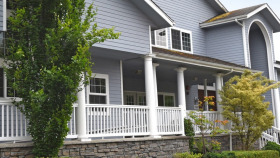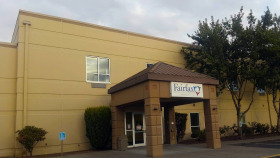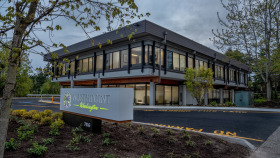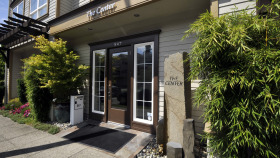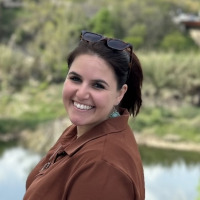Substance Abuse Statistics in Marysville, WA
Data compiled by the CDC and Snohomish County health authorities indicate that substance misuse has been a growing public health threat for several years. Local alcohol- and drug-use statistics include:1,2,3,4
From 2017 to 2020, alcohol-induced deaths in Snohomish County rose by 70%.
Approximately 16% of county residents report engaging in binge drinking regularly, while roughly 20% of teens report consuming alcohol regularly.
Levels of Substance Abuse Treatment
Washington residents have varying needs for substance use disorder treatment. Multiple levels of addiction treatment are available to meet those needs.
Detox
The detox process safely clears your system of all drugs and alcohol. This initial step takes place in a hospital or inpatient setting, where medical personnel can supervise and make you comfortable during withdrawal.
Residential or Inpatient
Residential treatment typically involves group and individual therapy, family therapy, medication, and other recreational therapy methods. Participants receive these treatments while living at a facility under 24/7 supervision.
Partial hospitalization programs (PHPs)
PHPs are less intensive than inpatient, because you only remain at the facility during treatment times. Methods of treatment usually involve some of the same methods used in residential care.Intensive Outpatient Programs (IOPs)
IOPs provide several hours of treatment spread throughout the week. This often includes individual and group therapy. Washington residents may transition to IOPs after completing a residential or PHP program.
Standard Outpatient
Standard outpatient programs involve two or three hours of care per week. This treatment typically takes place at an outpatient clinic or at a therapist’s office. This level of care is appropriate for individuals who are highly motivated and have strong support systems.
Aftercare
Aftercare includes supportive, ongoing treatment such as 12-step groups, transitional housing, or other accountability groups. The aim of this support is relapse prevention.
How to Pay for Drug Rehab in Marysville, Washington
Private Insurance
The Mental Health Parity and Addiction Equity Act requires all insurance providers to cover substance use disorder treatment to some extent. Since each plan differs regarding specific coverage, Washington residents must check with their provider to confirm exactly what is covered under their plan.
Washington Medicaid
Washington Medicaid is a government program for low-income residents that provides health coverage for individuals and families whose income is below specific levels. To use this program, residents must qualify and apply for Medicaid coverage, and the treatment facility must accept Medicaid as a method of payment.
Washington Medicare
Medicare is a government program that provides health insurance coverage for Washington residents aged 65 or older and individuals with certain disabilities. Not all rehab facilities accept Medicare as a payment method, so it’s important to research each program to determine if Medicare benefits will apply to their services.
Sliding Scale Rehabs
Sliding scale rehabs allow Washington residents to pay only what they can afford for treatment, based on their income. To qualify, residents must usually provide proof of income.
TRICARE in Washington
TRICARE in Washington (West region) provides health insurance coverage for U.S. military personnel, veterans, and their families. This coverage includes addiction treatment services, but not all plans offer the same amount of coverage.
IHS-Funded Drug Rehabs
Indian Health Service (IHS) rehabs provide free or low-cost treatment for Native Americans and Native Alaskans. This program is available even if the individual has other methods they could use for payment.
Traveling to Marysville: Transportation, Lodging Options, and Local Attractions

Are you interested in traveling to Marysville for treatment? Are you planning to visit a loved one as they work through their recovery program? These tips can help you plan your travels:5
- You can fly into Paine Field Airport, which is located about 20 minutes south of Marysville by car. Alternatively, you can fly into the much larger Seattle-Tacoma International Airport, which is roughly an hour’s drive south of the city.
- Interstate 5 passes directly through Marysville and is the most direct route to Seattle, which is just 34 miles south. U.S. Highway 2 is also a 10-minute drive from Marysville and can take you westward, across Washington and into neighboring states.
- Marysville has a few national-chain hotels and motels to choose from. However, if you’re willing to stay a few miles outside the city, you’ll find more lodging options in nearby Arlington and Everett.
- Lyft, Uber, and Taxi services are available in Marysville, all with short wait times.
- If you’d like to use public transportation, Snohomish County’s Community Transit service operates a few fixed bus routes that can take you around town and to neighboring cities.
- Jennings Memorial, Jennings Nature Park, Ebey Waterfront, and Snohomish River Delta all offer plenty of opportunities for outdoor fun.
- Charming downtown Marysville has several locally owned shops, eateries, and a public park where you can have fun people-watching or taking in the natural scenery.
Washington Drug and Alcohol Laws
Laws in Washington include the following regulations regarding substance use and misuse:1,2,3
Drug Courts: Washington residents who are charged with a first-offense, non-violent substance-related crime that does not involve DUI may be eligible to attend court-ordered rehab instead of serving jail time.
Good Samaritan Law: Washington’s Good Samaritan Law is designed to encourage people to call for medical assistance during an overdose. The law protects those who call 911 from prosecution for minor drug-related charges.
Naloxone Access: Washington state laws allow anyone at risk of drug overdose or who may be in a position to help someone experiencing an overdose to obtain and administer naloxone. Additionally, doctors may prescribe naloxone directly to an organization such as a homeless shelter, and some pharmacies can dispense naloxone to individuals without a prescription.
DUI Laws: In the state of Washington, the following drug paraphernalia is illegal, and possession of it is considered a misdemeanor punishable by up to 90 days in jail and a $1,000 fine.
- Cocaine spoons or vials
- Scales and balances
- Hypodermic needles or syringes
- Equipment used to test strength and purity
- Kits to process or manufacture illicit substances
- Chemicals used for cutting or diluting illicit substances
- Mixing devices
- Packaging equipment
- Pipes
Marijuana Laws: Marijuana is legal for both medical and recreational use in Washington. Adults 21 years and older can legally possess up to one ounce of cannabis, 16 ounces of marijuana-infused solid product, or 72 ounces in liquid form. All marijuana must be purchased from a state-licensed facility and consumed on private property. Driving under the influence of marijuana is illegal and punishable by jail time, license suspension, a $3,500 fine, insurance premium increase, and ignition interlock requirements.
Resources
- Centers for Disease Control and Prevention, National Center for Health Statistics. CDC Wonder Online Database. (2021). Underlying Cause of Death, 1999-2020 Results, Deaths occurring through 2020.
- Snohomish County Washington. (n.d.). Snohomish County Medical Examiner’s Office Drug Overdose Dashboard.
- Snohomish Health District. (2018, December). Opioid Use Disorder & Opioid Misuse in Snohomish County: Using Capture-Recapture to Estimate the Burden of Disease.
- Washington State Department of Health. (2017, May 8). Snohomish County Chronic Disease Profile.
- Marysville, Washington. (n.d.). Attractions.

